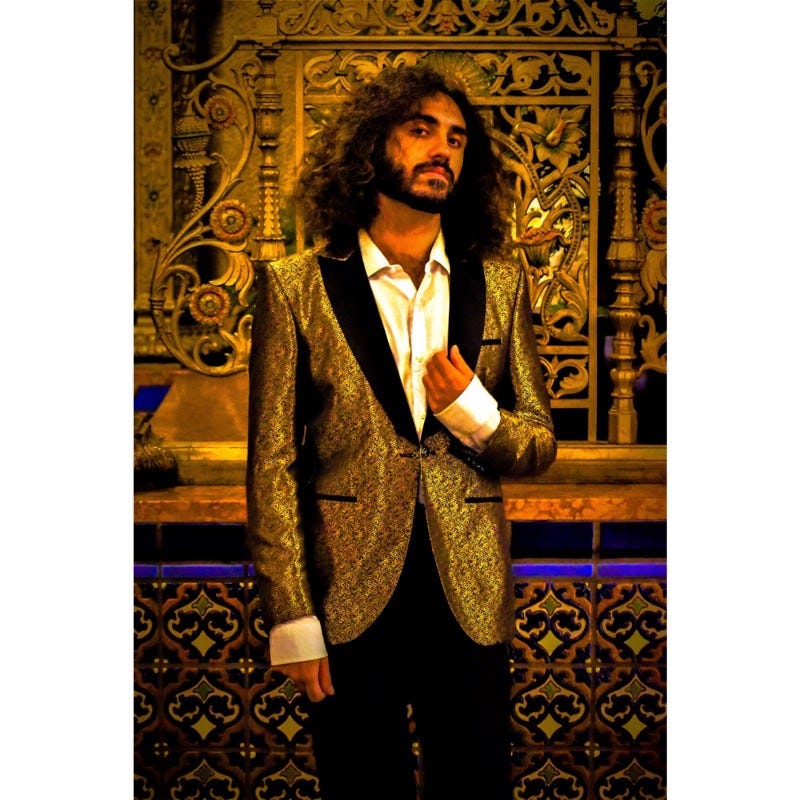A Critical View through a South Asian Lens: George Bizet’s ‘The Pearl Fishers’
An essay by Felix Jarrar
An essay by Felix Jarrar
Vancouver Opera is bringing back The Pearl Fishers to the stage for the first time in 30 years. As part of our work in exploring and explicating the opera, we have commissioned some thinkers, creators, artists and composers to explore their responses to the opera. More information on our production is here.
In today’s world, it is very easy to lump people together based on their appearance. This is especially true about Brown folks. As an artist, I work primarily in a field dominated by Eurocentric works and Eurocentric philosophies about how white people perceive the world at hand. I am a composer, primarily of vocal music — my output stands at 12 operas and 200 songs, among other works, and I work actively as a collaborative pianist and opera coach in NYC. I constantly run into issues with works I musically love, but frustrate me on a personal level for many reasons. Today, I will express my frustrations about George Bizet’s Les pêcheurs de perles (The Pearl Fishers).
Now, hear me out — I do love the music in this opera. The orchestration, the vocal writing, and the drama is deeply moving. “Au fond du temple saint” is rightfully one of opera’s most memorable duets, and many of the solos contain writing that is on par with Carmen, Bizet’s most popular work. However, there’s a Catch-22 for me as a South Asian artist who views the work, and that is the racism in the piece, the caricatures of problematic gender roles, and blatant straight washing that for me, as a queer artist, is really annoying.
Eugène Cormon and Michel Carré, the opera’s librettists, set the work in Kandy on a gold coast with ‘drunken’ indigenous people and Brahmins. The mixup of religion and geography is incredibly offensive to several different ethnic populations. The “Hindu” temple described in the work is the Temple of the Tooth Relic in Kandy, which is actually one of Buddhism’s most sacred temples in the world. The religion practiced by the Sri Lankan Malays, who have historically been the country’s pearl fishers, is Islam. The Brahmins — the priestly and religious class within the Hindu caste system — were some of the most influential people in Hindu society. The opera, however, makes no distinction between these three religions, and that’s what frustrates me the most — the piece shows a lack of respect for the setting in which the work is cast.
It is hard to describe these frustrations to someone who is not Sri Lankan or comes from a Sri Lankan background. A country the size of West Virginia, our general visibility in classical music, in particular opera, is very small. It’s very easy to mistake a Sri Lankan for someone from India. This opera perpetuates the stereotype that all Sri Lankans are the same, and further strips away our identity as people. In this opera, Sri Lankans are caricatures with a time, place, and narrative that is so inaccurate and so far-fetched that it’s almost laughably inaccurate.
As a queer person-of-color with a Sri Lankan mother (the libretto sets the story in Ceylon, which is the name colonizers gave it), my next issue with the piece is straight washing. The narrative has clear, queer undertones that are very present in the constant theme of friendship (i.e. “Au fond du temple saint”), However, these are never fully addressed. A culture that already has a complicated and problematic relationship to gender roles and sexuality, this opera does nothing to comment on this aspect of Sri Lankan culture.
There is only so much that can be done to rectify source material that is so flawed and presents such a gross mischaracterization of one of the oldest and most complex civilizations in human history. From its design to its casting, Les pêcheurs de perles must be recontextualized for today’s modern world by ceding interpretive control to musicians, singers, and production artists of South Asian heritage, allowing them to decide how to represent a vast cultural diaspora. Vancouver Opera’s production, directed by Rachel Peake, rightfully involves many South Asian artists in the production, which is vital to ensure the work is presented with cultural sensitivity to the South Asian community.
With music described as “dreamlike” (Boston Globe) and “delightfully cruel” (Operawire), composer/pianist Felix Jarrar’s music “flows from him in the most natural and lively way.” (Tom Cipullo). Amongst his 230 works, he’s written 200 art songs, 12 operas, 2 string quartets, 2 cantatas, and an oratorio. Jarrar is a vocal coach at Mannes. Find out more at felixjarrarmusic.com






